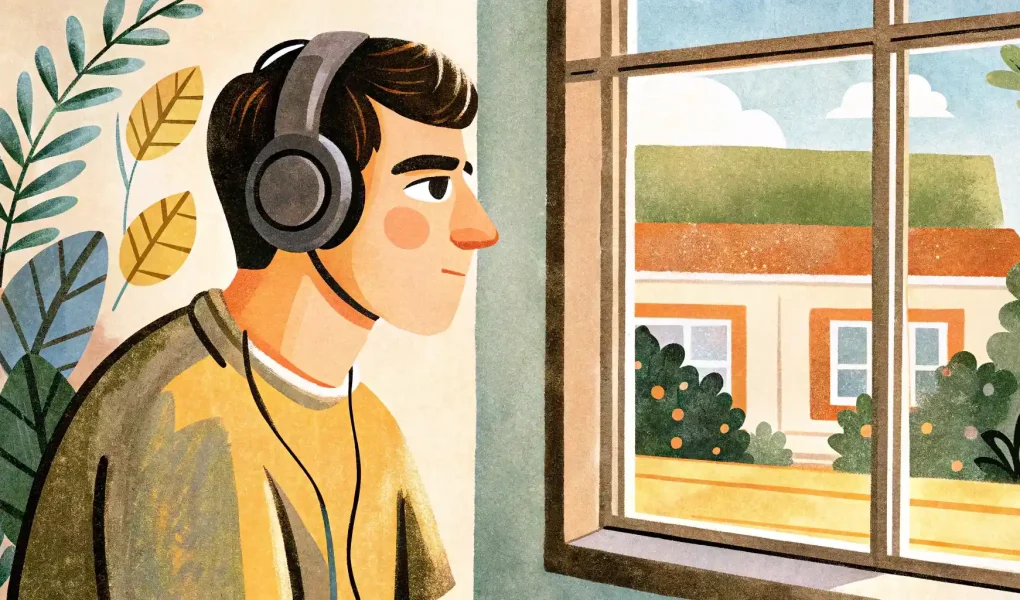Autism, which is also known as Autism Spectrum Disorder, is a complex neurobiological condition affecting how an individual perceives the world and interacts with other people.
It is not a disease that needs to be treated, but rather a part of the personality that requires understanding and support, especially when working with children by choosing concentration games for them.

Main Signs of Autism
The signs of autism can appear when a person is very young and these signs will often stay with them for their whole life, so they are usually grouped into two main categories, which include how people communicate and interact with others, as well as having limited and repetitive interests or behaviors.
Social Interaction and Communication
These things are some of the clearest signs of ASD, because people with autism can have difficulties with things like talking to others, so it can be hard for them to have a two-way conversation and they may also find it difficult to answer questions or to start talking themselves, sometimes only talking about a few topics they are very interested in.
They also might find it hard to understand or use hand movements, facial expressions, and eye contact, for example, a person may not look into another person’s eyes or may not understand what a person’s face is showing.
It can be difficult for them to start or keep friendships, as they might not understand social rules, so a person might prefer to do things alone rather than wanting to be in group games or activities.
Limited and Repetitive Interests or Behaviors
This group includes many different behaviors and interests that can be very strong or unusual, for example, a person might do repetitive movements that are called ‘stimming,’ or self-stimulation, which can be things like flapping hands, rocking the body, spinning objects, or making the same sounds, because stimming often helps a person to feel better when they have too many feelings or senses.
People with autism may not like when their daily routine changes, because any change from the usual routine can cause a lot of stress and worry, and they can also be very interested in certain things, such as dinosaurs, trains, collecting items, or public transport schedules, and these interests can give them a lot of knowledge and happiness.
Another thing is sensory sensitivity, where they can be more or less sensitive to things they feel, see, hear, or smell, and a person can be very sensitive to loud sounds, bright lights, certain textures, or smells, which can be painful, but they might not feel pain or heat very much.
Causes of Autism
Autism is not caused by bad parenting or a person’s feelings, because today scientists believe that ASD comes from a mix of genetic and environmental factors that affect how the brain develops.
Scientists are also looking at different things in the environment that can affect ASD, but they do not have a full answer yet, and some things they are looking at include the age of the parents and problems during pregnancy, while it is important to know that the idea that vaccines cause autism has been shown to be false by many big scientific studies.
Methods for Support and Adaptation
Autism is not a sickness that you can fix with medicine, because the goal of therapy and support is not to change a person’s characteristics, but to help them learn the skills that they need for a good life.
Therapy Methods
Applied Behavior Analysis is a very common and scientifically proven therapy for children with autism, and its goal is to help a person learn useful skills and also to reduce behaviors that are not helpful by using a system of learning.
Occupational therapy helps people with autism to deal with sensory problems and learn motor skills that are needed for their daily activities, while social skills training classes help people with autism understand and practice social skills in a safe place, for example, how to make friends or how to have a conversation.
Support and Adaptation
The earlier a person gets a diagnosis and support, the more progress they can make, and many schools also have special learning programs that change the classes and give people the resources that they need.
Parents and other family members need to learn about autism and get emotional support so they can better understand and help their loved one with ASD, and it is also important to create an accepting community where people with autism can be a part of society and have access to jobs and fun activities.
How Concentration Games Help People with Autism: Try the Mind Elevate Games
For many people with autism, it can be hard to concentrate in normal places because they can feel too many things at once, feel worried, or get distracted, so games that are made for concentration can be a great tool because they create a clear, easy-to-understand, and controlled environment that helps them.
- Since games have clear rules and goals, this makes a person feel less worried and lets them focus on the task without thinking about any unexpected changes
- Many games also let a person control the sounds and pictures, so they can change the volume, the screen’s brightness, and the speed, which helps them avoid getting overwhelmed
- When a person finishes a level or reaches a goal, they get a good feeling right away, and this makes them want to keep going and train their concentration.
- Games can also be a safe place for a person to stop thinking about stressful things, because focusing on the game helps to reduce stress and feel calm
- Furthermore, concentration games, which include puzzles, mazes, and memory games, can train the working memory, logical thinking, and ability to solve problems

Life Hacks for Concentration for People with Autism
| Life Hack | Description and Example |
| Create a “Quiet Corner” | You can make a place where a person can be alone from too many senses, and this quiet corner should have a soft blanket, pillows, noise-canceling headphones, and favorite calming things, because it is a personal space that will help them feel better |
| Use Timers | You can break up big tasks into small time parts by using a timer on your phone, so for example, you can work for 15 minutes and then have a break for 5 minutes, which helps to make time clear and not feel so overwhelmed |
| Use Visuals and Schedules | It can be helpful to use schedules with pictures to show the order of tasks, because this makes the routine easy to understand, so for example, you can have a picture schedule on the wall that shows what to do |
| Have Sensory Breaks | It is a good idea to have regular short breaks for sensory stimulation or to rest, and this can be playing with toys, jumping on a trampoline, squeezing a soft ball, or just being quiet with headphones on, because these breaks help the nervous system feel better |
| Use Weighted Items | A weighted blanket or vest can give a deep pressure that calms the nervous system and also helps with concentration, which is why it is often used during class or before sleeping to help a person feel less worried and to focus better |
| Use Sound Filters | Noise-canceling headphones or “white noise” can block out sounds that distract a person, which can make the sounds in the room easier to understand and is very important for people who are sensitive to sounds |
| Break Down Tasks | If a task seems too big and difficult, you should break it into very small parts, start with the easiest part, and then slowly move to the harder parts, because finishing each small part feels like progress |
| Use Incentives | It is good to use favorite items or activities as a reward after finishing a task, and this can be watching a favorite show, playing a video game, or doing a favorite hobby |
| Make the Environment Predictable | You should try to make the place around you as predictable as possible, so do not change where furniture or other things are, and do not change routines, because being predictable makes a person less worried and frees up energy for concentrating |
| Mindfulness Exercises | Short exercises that help a person to be more mindful can also help them learn how to focus, for example, they can try to find 5 blue things or listen for 3 sounds in the room, which trains the brain to concentrate |




